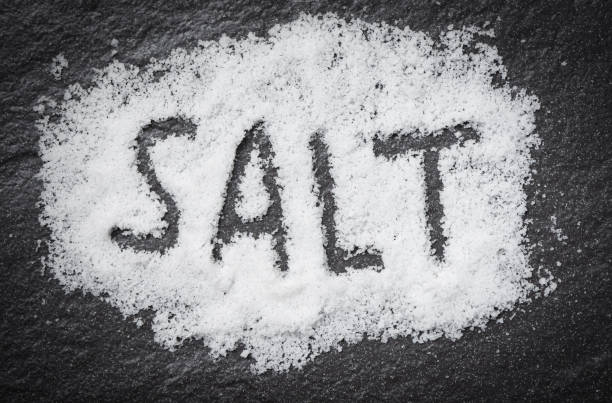Excessive salt intake could lead to type 2 diabetes.
Researchers from Tulane University in the US have concluded that consuming excessive salt over a long period increases the risk of weight gain and abdominal fat. This could lead to type 2 diabetes. The study also found that those who regularly consume a high amount of salt had a higher risk of type 2 diabetes. The risk percentage for people who prefer to use less salt was 20. People who seldom add salt to their food had the lowest risk (13%).
Researchers analyzed the data of 402,982 UK Biobank participants who did not have diabetes, kidney disease, or cardiovascular problems. They also correlated their salt intake with their daily patterns and frequency. The study conclusions have been published by the peer-reviewed Mayo Clinic Proceedings medical journals and highlighted the need for more studies to understand salt’s link with type 2 diabetes fully.
The study concluded after an 11,8-year follow-up that at least 13,000 of the 402,982 subjects had developed type 2 diabetes. Dietary patterns and variations in the health conditions of participants were closely monitored and adjusted according to deviations from the HbA1C baseline reading recorded at the study’s beginning. The DASH diet, which is low in salt and sugar and high in fruits, vegetables, and natural micronutrients, was found to improve health during the duration of the study.
Researchers have concluded that reducing salt intake is also one of the behavioral interventions to manage type 2 diabetes better.
Diabetes and salt intake are linked.
The study found a link between excessive salt consumption and weight gain, particularly around the waistline and abdomen. According to experts, abdominal fat is one of the most prominent markers of high risk for type 2 diabetes.
Researchers found that a high intake of sodium significantly increased inflammation and oxidative stresses in the body – factors that are responsible for insulin resistance and the onset of type-2 diabetes.
Dr Belinda George is an associate professor of endocrinology at St John’s Medical College in Bangalore. She says excessive salt intake leads to weight gain and Hypertension.
When there is more salt in the body, it can lead to water retention and weight gain. She says that obesity and Hypertension directly increase the risk of developing type 2 diabetes.
She also adds that salt consumption increases Hypertension in individuals.
This study shows that both type 2 diabetes (also known as Hypertension) and type 2 diabetes coexist. This is attributed to obesity, lack of physical activity, and a poor diet.
Dr George says that insulin resistance is the common cause of both Hypertension and diabetes.
WHO Report on Hypertension
WHO released its first global report on Hypertension recently and stated that Hypertension caused by excessive dietary sodium was responsible for 2 million of the 10.8 million cardiovascular deaths worldwide. International health organization WHO called on people to adopt healthier lifestyles and reduce their salt intake. They said that Hypertension and diabetes are linked as many people with uncontrolled type 2 diabetes also have high blood pressure.
The WHO states that “uncontrolled hypertension and elevated cholesterol, not diabetes itself, are the most significant risk factors for premature death and disability in people with diabetes.”
Dr Belinda points out that many people, particularly Indians, tend to think that managing diabetes is only about reducing sugary foods.
She says that if people do not control their intake of salty foods, such as nankeen, it could negatively impact their diabetes management.
Another recent WHO report on consumption and sale patterns of ultra-processed foods in India pointed to the high fat, sugar, and salt content of these foods as the primary factor for the prevalence of non-communicable diseases like diabetes and coronary artery disease.
Reduce salt consumption
The WHO Report on Hypertension recommends that we include more macronutrients and essential minerals in our daily diet, along with fiber and protein. The report states that reducing salt intake and increasing potassium and nitrate-rich green leafy vegetables, fruits, and other macronutrients in the diet can improve blood circulation and vascular health. It also reduces the risk of diabetes and heart disease.
Takeaway
Recent research has shown that excessive salt consumption in food can increase the risk of developing type 2 diabetes. This conclusion was reached after analyzing the health data and dietary habits of over 40o000 people from the UK Biobank cohort. The article urges further research on the relationship between salt intake and diabetes and states that reducing sodium intake can help prevent type 2 diabetes.


